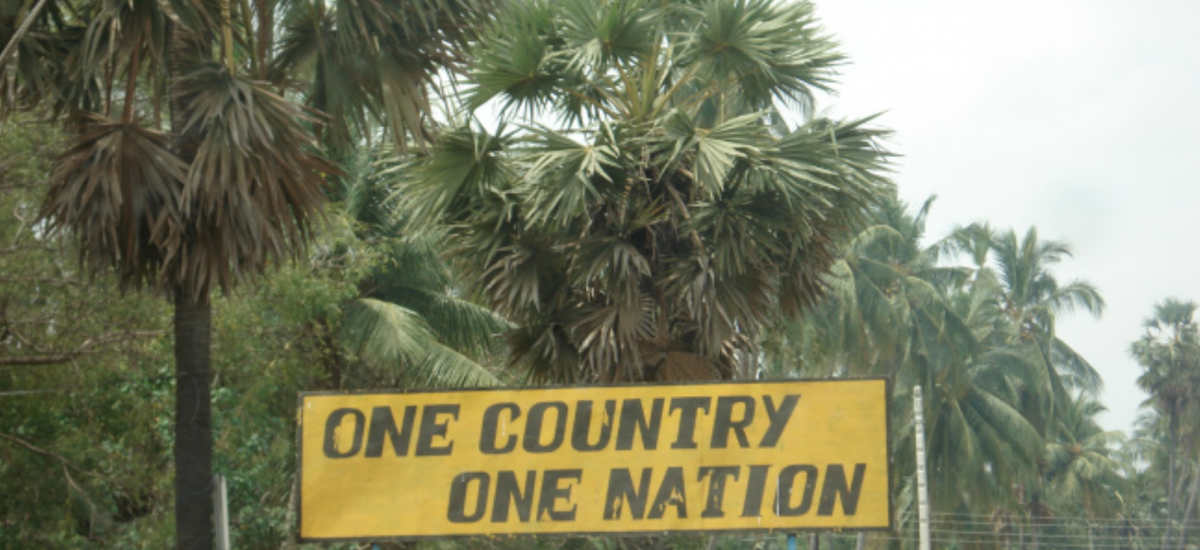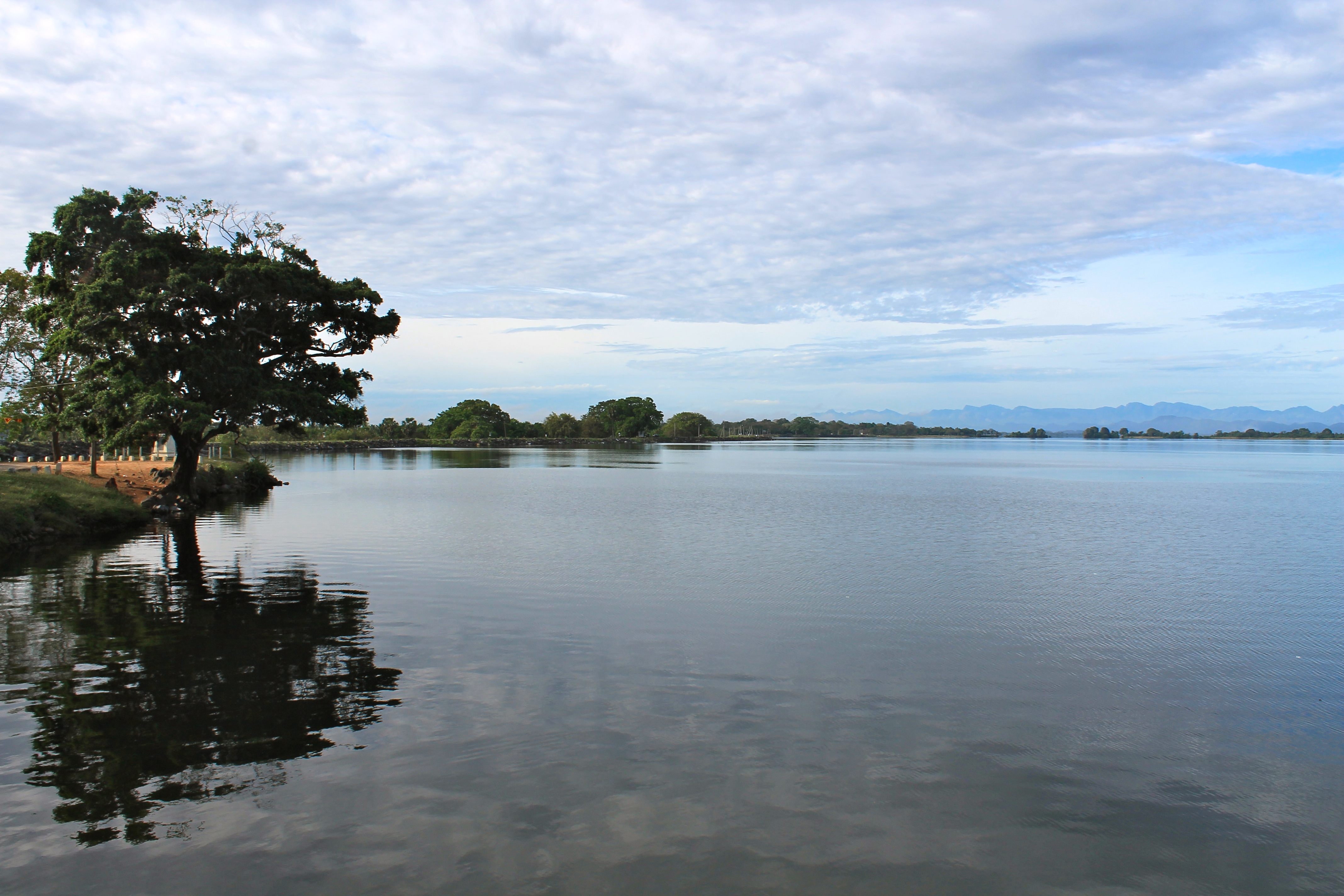Photo by Arun Pillai-Essex
I am having a somewhat surreal conversation with a young man. He is describing a telephone conversation with a woman calling from Australia who, ‘speaks with a Sinhala accent’. When I ask him what he means by that, he says, she sounds the way I do. What does that mean I ask confused. He repeats that she sounds like a Sinhala. I tell him that I am ethnically and religiously a Muslim and perhaps he means a Sri Lankan accent, instead of a Sinhala accent. His response is what is the difference, and why do I have to bring differentiation and ethnicity into my mindset. To him Sinhala and Sri Lankan are one. I explain that there are different ethnicities that live in Sri Lanka and perhaps we have regional and ethnic differences in our pronunciation but we are all considered Sri Lankan and that Sri Lankan is a better way to describe that woman’s accent rather than Sinhala, after all he nor I have any idea whether she is Sinhala or not, all we know is that she called from Australia. He understands my point. He apologizes and says this is the first time he has been made to think of the difference.
May 2014
I meet three young men at a woodshop in Puttalam. In conversation, I ask them their names, two are Muslim names, the other is a Rohan. Sinhala, I ask in surprise as most merchants in the area are Muslim. He shakes his head and says he is Christian.
March 2014
I am visiting the Lankatilleke temple with a group of 30 young Sri Lankans from all parts of the country. The temple custodian firstly refuses entry to the two women, one from Eravur, the other from Kandy, in the group wearing hijab, on the grounds of caps and head covering not being allowed inside the temple, and then asks me rudely whether we are foreigners? To me, we are clearly Sri Lankans and annoyed at his question, I tell him we are all brown skinned, black haired, brown eyed and if not Sri Lankans what does he think we are? I go on to ask him, if he is Sri Lankan? This response annoys him, and he tells me, curtly, to get on with my business at the temple and leave this place as quickly as I can.
February 2004
A young girl from a leading private school is visiting me on Independence Day. Making small talk with this sixteen year old, I ask her quite casually, what does Independence Day mean to her. She replies, it is the day the Sinhalese got independence from the British. I am somewhat startled and ask her what she means. Again she repeats that Independence Day is for the Sinhalese. She is genuinely contrite when I ask her, does that mean Independence Day is not for me?
Talking to people, I learn that in the opinion of most, before 1983, while conflict with other communities did exist, there was more space to recognize difference and otherness, with respect and acknowledgement. But now, that space has shrunk and my argument is, it was not only the conflict that created this situation. Throughout the years, for reasons known only to themselves, the state has engaged in a systematic effort to actively support separation and division of everyone from each other, based on community, religion, class, language, dress, food etc. – perhaps being influenced by Dharmapala who conflated Sinhala and Ceylonese – as per Michael Roberts’ opinion piece carried in this very same series. The conflict accelerated this program of otherness. But I remain convinced it is not an accident. This is what our leaders wanted to happen and now they have it, sooner rather than perhaps later, and it has come to stay. For those who disagree, I shall merely point out the segregated schools based on ethnicity, the encouragement of Islamic madrasas funded by Wahabis, the sustenance of the BBS, the refusal to implement the language policy, the continued violence against minorities, periodic attacks on churches and mosques that if not state sponsored, is certainly not discouraged, etc.
We are now post conflict. A term that is as ambiguous as it sounds. To the government post conflict means peace and the space to develop. To the Tamils, post conflict means an absence of war but no parity or justice. To the Muslims, post conflict means resettlement and becoming the new targets of hate. To the Christians, post conflict means lie low and hope they are not the next target. But most important of all, what does post conflict mean to the Sinhalese? Alas! That is something I cannot tell. It perhaps, is everything and nothing.
Sri Lanka is a country that seems poised to make a breakthrough at any point in the last five years, but each time, it is as if, she shoots herself in the foot, and now we seem to be poised on the edge of a precipice – we can either take off or fall off. To the citizen not interested in the back story, the country is going where it should. We have good roads, we are building highways that are much needed, towns all over the country are getting a facelift and the capital is already quite beautiful. Big industry and commerce are getting a boost; there is a new class of elite – political, financial and social. Geneva and the international communities are bug bears that should leave Sri Lanka well alone.
But I have discovered Sri Lanka has many realities and many truths and many stories. In March and April early this year, I was fortunate to be a part of Shyam Selvadurai’s Write to Reconcile programme. I spent ten days with twenty seven youth from the North, East, South, West, and Central parts of Sri Lanka. We had Buddhists, Hindus, Muslims, Christians and even atheists in the group. We heard stories of war, conflict, separation, disappearances and torment from all sides. But what stood out the most from that experience, was the undeniable feeling of hope. The generous spirit that the participants shared with their cohorts was enriching personally. When a Muslim participant felt her community was being unfairly targeted by a guest speaker, the group spoke out in her defence, the next day. A young woman from Jaffna who had lost both parents in the conflict asked plaintively: Why must we always talk about the war and conflict, can’t we just move forward and carry on with our lives? This provoked a flurry of debate, some in favour of moving on without resolution, some against. Unlike the political realities there was the space to disagree with respect and consideration for another point of view.
And yes, that young woman from Jaffna, did ask an important question: Can’t we move forward and carry on with our lives? That is a common enough thought. The point is can we? In my opinion, we have never had a government that has thought of itself as a government of the people. They have always been a communally based government. This is what is fundamentally wrong with our idea of governance. It has always been composed of petty minded individuals who rely on myth making, rabble rousing and constant prejudice to exist in power. If the British have been accused by us, of divide and rule, then how different have successive Sri Lankan governments been?
One day in conversation with the current German Ambassador, I was surprised to learn there exists a Commission in Europe that examines ways to teach children in every European country the history of the World Wars, in the most fair and just way. This means that every single European country is teaching the same thing with regard to the World Wars.
It got me thinking. Will there ever come a day, when we here in Sri Lanka will teach ancient history without laying blame on any ethnic group? Will we be able to read books on our modern history that acknowledge injustice to ethnic groups? Will we stop our short sighted policies, and encourage our children to learn all the religions that exist in the country, so that they respect each religion instead of ridicule? Will we grow up to be proud of our differences and celebrate that we are all part of a country that has many colours and many forms? Will we be able to speak the three languages that are part of our country’s heritage and culture? When that day comes we will be a country that has happy contented citizens.
The way I see it today, we have one of three options: First, and the most preferable, we need to have a radical shift of stance in our governments. Politicians need to be statesmen or women, and governments need to be for all their citizens. I don’t see that happening. Which leaves the remaining two. Either it will be difficult for Sri Lanka to be free of conflict or the final option; the minorities will have to become Sinhalese. Then we can all pretend to be one big happy family.
Subha Anagathayak Wewa!
###
This article is part of a larger collection of articles and content commemorating five years after the end of war in Sri Lanka. An introduction to this special edition by the Editor of Groundviews can be read here. This, and all other articles in the special edition, is published under a Creative Commons license that allows for republication with attribution.


